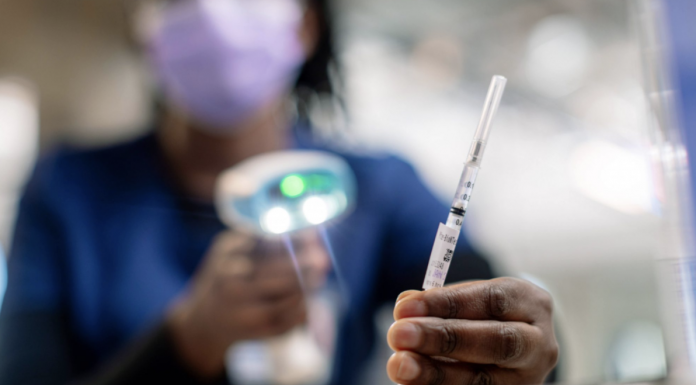NATURE – Vaccinating people with both the Oxford–AstraZeneca and Pfizer–BioNTech COVID-19 vaccines produces a potent immune response against the virus SARS-CoV-2, researchers conducting a study in Spain have found.
Preliminary results from the trial of more than 600 people — announced in an online presentation on 18 May — are the first to show the benefits of combining different coronavirus vaccines. A UK trial of a similar strategy reported1 safety data last week, and is expected to deliver further findings on immune responses soon.
Because of safety concerns, several European countries are already recommending that some or all people who were given a first dose of the vaccine developed by the University of Oxford, UK, and AstraZeneca in Cambridge, UK, get another vaccine for their second dose.
Researchers hope that such mix-and-match COVID-19 vaccination regimens will trigger stronger, more robust immune responses than will two doses of a single vaccine, while simplifying immunization efforts for countries facing fluctuating supplies of the various vaccines.
“It appears that the Pfizer vaccine boosted antibody responses remarkably in one-dose AstraZeneca vaccinees. This is all around wonderful news,” says Zhou Xing, an immunologist at McMaster University in Hamilton, Canada.
Starting in April, the Spanish CombivacS trial enrolled 663 people who had already received a first dose of the Oxford–AstraZeneca vaccine, which uses a harmless chimpanzee ‘adenovirus’ to deliver instructions for cells to make a SARS-CoV-2 protein.
Two-thirds of participants were randomly picked to receive the mRNA-based vaccine made by Pfizer, based in New York City, and BioNTech, in Mainz, Germany, at least eight weeks after their first dose.
A control group of 232 people has not yet received a booster. The study was led by the Carlos III Health Institute in Madrid.
The Pfizer–BioNTech booster seemed to jolt the immune systems of the Oxford–AstraZeneca-dosed participants, reported Magdalena Campins, an investigator on the CombivacS study at the Vall d’Hebron University Hospital in Barcelona, Spain.
After this second dose, participants began to produce much higher levels of antibodies … Click here to read more.
Could COVID-19 vaccine cause male infertility? The answer is nuanced
Nicole Villalpando, May 17, 2021
Austin American-Statesman – People give all kinds of different reasons for not getting the COVID-19 vaccines. They question the science behind it. They worry about the side effects. They worry about the newness of it.
One of the recurring statements being heard is that it causes infertility among men, or parents fearing for a teenage son’s future fertility.
There is a kernel of truth to it, but it’s not because of the vaccine. It’s because of a side effect that can happen with any vaccine, or getting a cold, flu or even COVID-19.
Joel Hawkes of Travis County Fire and Rescue fills a syringe with a Pfizer vaccine. The Pfizer, Moderna and Johnson & Johnson vaccines have not shown to cause long-term infertility in men.
A fever can temporarily suppress male fertility, says Dr. Parviz Kavoussi, a reproductive urologist at St. David’s South Austin Medical Center.
About 16 percent of people might experience fever after receiving one of the COVID-19 vaccines, Kavoussi says, which is why there might be some link between getting the vaccine and temporary male infertility.
Anytime a man has a fever, fertility can be affected for about three months, Kavoussi says. “At three months, it’s going to bounce back,” he says.
This matters for couples who are dealing with infertility. They might need to wait until three months after having any fever, whether caused by a side effect of the vaccine, or COVID-19 itself, for his fertility to recover. By six months, it should be back to what it was before the fever, Kavoussi says.
“It’s a temporary suppression, even in infertile couples,” he says … Read more here.



